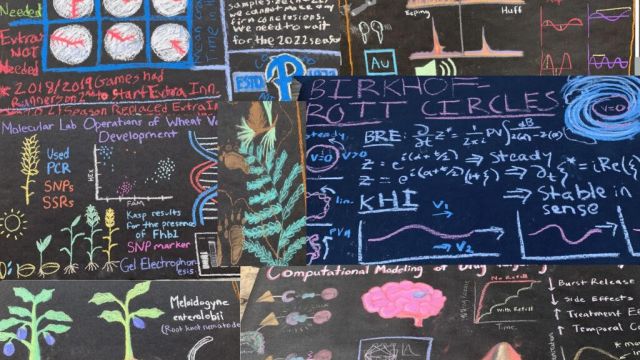Open Research
Open research aims to make both the products and processes of scholarship more transparent, accessible, and reproducible. The White House Office of Science and Technology Policy (OSTP) recently defined “open science” as the “principle and practice of making research products and processes available to all, while respecting diverse cultures, maintaining security and privacy, and fostering collaborations, reproducibility, and equity.” These open research principles and practices can be applied equally to research in the social sciences, humanities, engineering, and mathematics.
Libraries Support for Open Research and Scholarship
We can help you make your work more open in a variety of ways, from supporting open access publishing to sharing your work with various audiences. Contact us to request a consultation or instruction session.
- Open access
- Data publishing
- Federal Agency Public Access Requirements
- Reproducibility
- Best practices for sharing research online
- Rights management, licensing and copyright for researchers
- Open research tools and platforms
- Developing a scholarly online presence
- Demonstrating the impact of open works
- Translating academic work into an online or digital project
- and more...
Tools
We have expertise in a wide variety of research tools and can advise on tools, platforms, and systems that support open research and scholarship. The list below is not exhaustive. Contact us if you have a question or need assistance.
- ORCID is a persistent identifier that distinguishes you from other researchers and acts as a mechanism for linking your research outputs and activities to your iD. Integrated into many publishing and grant funding platforms. Link your Unity ID with your ORCID profile to access library services that help you manage your publication lists.
- Data repositories can support discovery of your data on the web, increase citations and reuse of your data, and help you meet requirements of funding organizations.
- Zenodo is a general repository for any form of research output. Sponsored and supported by CERN and the European Union, automatic DOI creation for every object, versioning, and the ability to choose a variety of open licenses for each individual object.
- Open Science Framework is a research collaboration hub for managing and publishing a project, especially gathering all project assets (data, code, presentations, publications, documentation) in one place. Interoperable with many common tools (e.g., GitHub, Google Suite) and includes the ability to create a DOI for a project.
- Disciplinary archives such as ArXiv, BioArxiv, EngrXiv, Humanities Commons, and SocArxiv offer community-maintained and governed options for sharing pre-prints, conference posters, and other research outputs. Most also assign DOIs to submitted objects.
- Zotero is an open source citation management tool. Integration with Google Docs and featured one-button formatted bibliography output.
- Overleaf is an online LaTeX and Rich Text collaborative writing and publishing tool. Includes versioning for tracking changes and templates for many forms of academic writing, from CVs and bibliographies, to lab reports and journal articles.
- Hypothes.is is a collaborative annotation tool in the web browser. Ability to annotate web pages and PDFs and create public or private groups for labs, international collaborations, or classrooms.
- PubPub is an open source, hosted, community publishing platform. Built for modern academic publishing, including versioning, integrated peer engagement (reviews, comments, annotations), exportability to many formats (LaTex, EPUB, HTML), and the ability to create various forms of publications (journals, proceedings, books, etc.).
- The Libraries’ Data Science Consultants provide help with data analysis, visualization, and open data science tools such as R and Python. ROpenSci and PyOpenSci develop software packages supporting open science.


